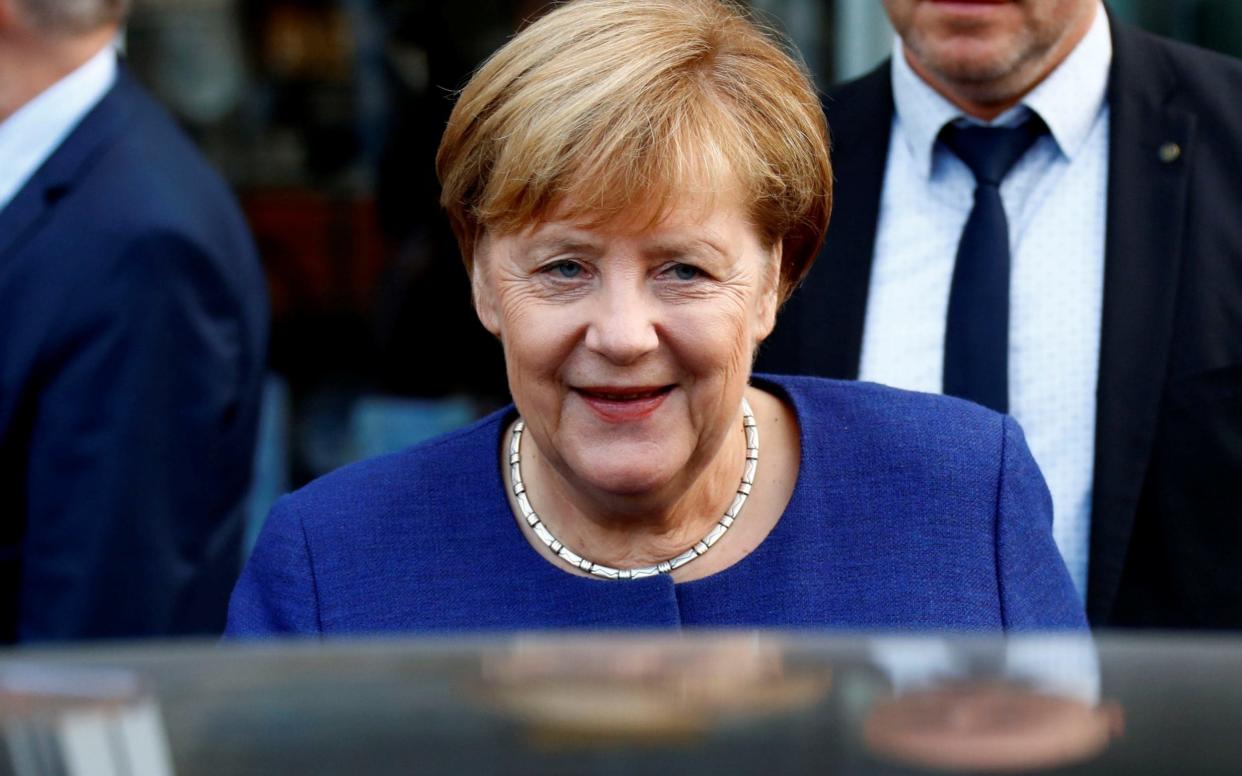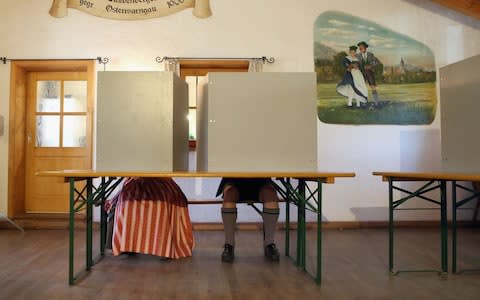Angela Merkel government at risk of split after coalition partners drubbed in Bavaria elections

The future of Angela Merkel’s government in Germany was cast into renewed doubt yesterday as the chancellor's coalition partners faced calls to withdraw their support.
In the wake of heavy losses in regional elections in Bavaria, leaders of the centre-Left Social Democratic party (SPD) were urged to pull out of the ruling grand coalition, raising the prospect of early elections or a minority government.
Andrea Nahles, the SPD leader, sought to play down a possible split yesterday, insisting she would not set out any conditions for the party remaining in Mrs Merkel’s government. But the SPD announced that its leadership is to meet next month for discussions on the future of the coalition.
Mrs Merkel put heavy losses in the Bavarian elections down to a “loss of trust in politics” following prolonged coalition negotiations last year. “As chancellor, it’s my job to restore that trust,” she said yesterday.
It was her Bavarian sister party, the Christian Social Union (CSU), which dominated the headlines after its worst result since 1950 in Sunday’s regional elections.

But the night was even worse for the SPD, which came fifth with just 9.7 per cent of the votes: its worst ever result in any German election.
With voters clearly deserting government parties, there were renewed calls inside the SPD for the party to reconsider its role in the coalition.
“Something has to change seriously if this government is to endure,” Ralf Stegner, the SPD deputy leader, said. “The voters in Bavaria delivered a very negative verdict on the work of the coalition.”
“This is not the time to be drawing red lines on the future of the coalition,” Ms Nahles said. “The fate of a national coalition can’t come down to a regional election.”
But Lars Klingbeil, the party chariman, called for “a new style of government in the coalition,” adding: “The coming months will be decisive.”
No party is expected to make a move ahead of regional elections in two weeks’ time in the state of Hesse, home to Germany’s financial capital Frankfurt. But if results there are as bad for the coalition parties, Mrs Merkel’s future as chancellor could be in doubt.
Her Christian Democrat party (CDU) was not directly involved in Sunday’s vote in Bavaria, where it relies on its local sister party, the CSU. But Hesse is one of the CDU’s traditional strongholds, and current polls predict it could face heavy losses there.
If the polls are right, it will add to growing discontent within the party over Mrs Merkel’s leadership, and she could even face a challenge at the party conference in December.
Meanwhile Horst Seehofer, the CSU leader, resisted calls for his resignation after the party’s disastrous election results. “I’m not getting into any personal discussions about myself today,” he said. “But I’m ready for any debate.”
Mr Seehofer’s tactic of repeatedly brining Mrs Merkel’s coalition to the brink of crisis with internal disputes has been widely blamed for the party’s poor showing, and there were angry recriminations between the two sister parties yesterday.
“This is a self-inflicted wound,” Daniel Günther, a rising star of Mrs Merkel’s CDU party said. “The CSU leadership has made massive mistakes in recent years. You cannot exempt any of them.”

 Yahoo News
Yahoo News 
